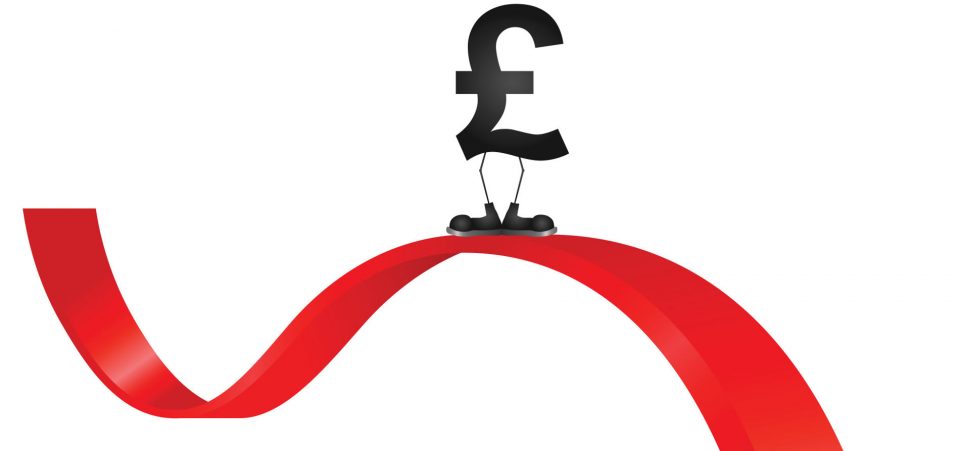British Pound Flash Crash Was “Shocking”
Investors got an unexpected surprise early Friday as the British pound (GBP)came crashing down ahead of the Asian markets’ opening bell. The GBP has not seen a dive this steep since Britain voted to leave the European Union, an event that news agencies have dubbed “Brexit.”
The “dramatic” six-percent fall dried up any liquidity in the pound. Forex traders were terrified of taking such a big hit, which caused the bid-ask spread to widen to 250 times its median range. The currency eventually rebounded to $1.23, but its long-term trend still slopes downward. (Source: “Deutsche Bank “Shocked” At “Disorderly, Dramatic” Pound Flash Crash,” Zerohedge.com, October 7, 2016.)
Deutsche Bank AG believes this “shocking” move was only the beginning. In a note to clients, the bank’s senior FX analyst George Saravelos wrote that Deutsche Bank expects the GBP/USD to hit $1.15 in a few months. This would imply that the flash crash revealed the true value of the British pound, however briefly.
What Saravelos is saying is that the British pound needs to drop in order for the country to fund its massive trade deficit. The value of GBP-denominated assets might suffer huge blows, but that was an expected result of Brexit.
Perhaps the effects came later than expected, but they nonetheless suggest that analysts were correct in their evaluation of a “Leave” vote. Now that there is rising concern over inflation, Saravelos thinks the Bank of England (BOE) will avoid another rate hike. He believes that FX intervention is more likely.
With the cost of imports rising, the central bank cannot risk further devaluation. Therefore, they may bolster the GBP through implicit tapering, or else by shifting their foreign currency reserves.
On the upside, these repercussions for leaving the EU will likely keep other nations from exiting the alliance. There have been fears over a contagion effect, whereby the departure of one country would ultimately unravel the entire European project, but expensive flash crashes serve as a warning that independence comes at a cost.
The odds of a rate cut from the BOE have dropped from 100% to near 70%. Saravelos says that Deutsche Bank expects those odds to continue dropping as the British pound plunges to $1.15.






